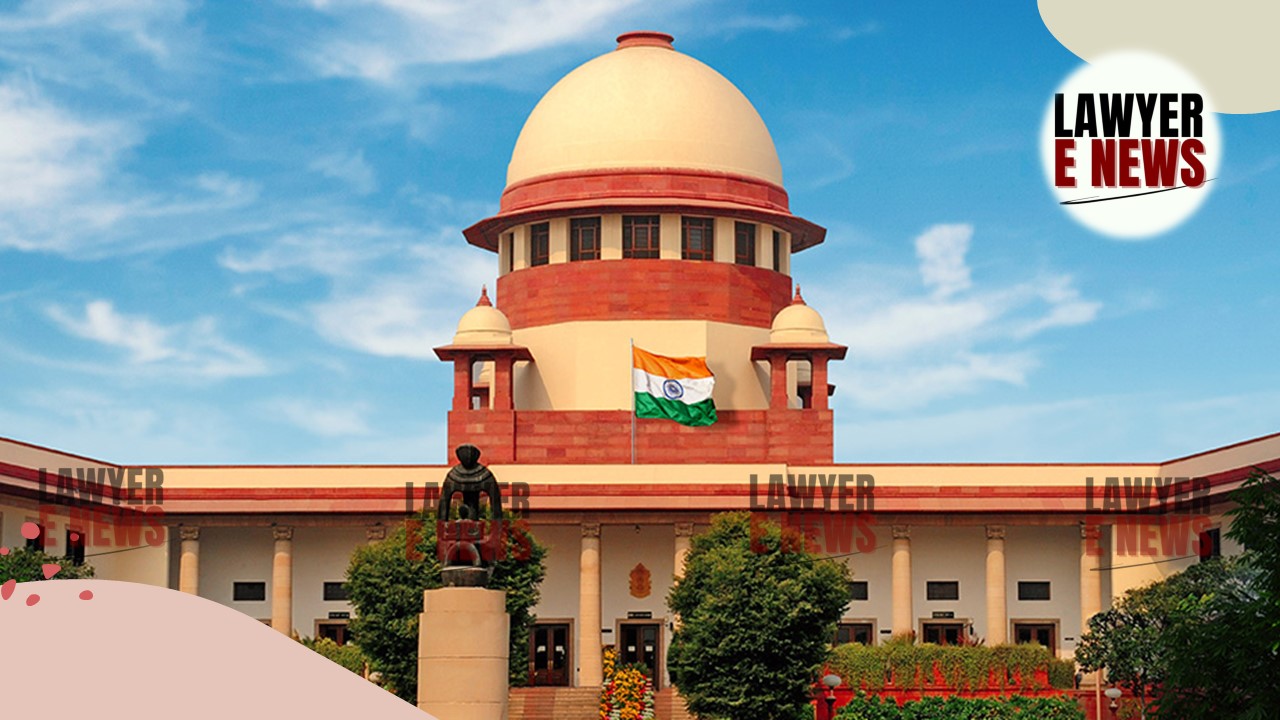-
by sayum
17 February 2026 8:32 AM



“A Document May Still Be Evidence of an Oral Agreement Despite Being Unstamped and Unregistered” - In a significant ruling on the admissibility of documents in civil suits, the Supreme Court of India setting aside a Madras High Court decision that had refused permission to mark an unregistered and unstamped agreement of sale dated 01.01.2000 in a suit for specific performance. The Court emphasized that under the proviso to Section 49 of the Registration Act, 1908, such documents may still be received in evidence to prove an oral contract, particularly in a suit for specific performance.
“An unregistered sale deed can be admitted in evidence as proof of an oral agreement of sale under the proviso to Section 49 of the 1908 Act.” — Justice Pamidighantam Sri Narasimha
The appellant Muruganandam had filed a suit for specific performance and injunction based on a sale agreement allegedly executed on 01.01.2000, claiming part consideration was paid and possession was delivered. A subsequent understanding on 01.09.2002 fixed the sale price and more payments followed. When the seller did not execute the final deed, the suit was filed.
During the suit's pendency, the appellant sought to bring the original agreement on record via an interlocutory application under Order 7 Rule 14(3) CPC, asserting that it was omitted earlier due to oversight and that a photocopy had already been filed with the plaint.
However, both the Trial Court and the High Court rejected the application, citing that the document was unstamped and unregistered, and thus barred under Section 35 of the Indian Stamp Act and Section 17 of the Registration Act.
“The Law Is Settled”
The Supreme Court disagreed with the High Court and held that the matter squarely fell within the proviso to Section 49 of the Registration Act. It relied upon the authoritative precedent in S. Kaladevi v. V.R. Somasundaram (2010) 5 SCC 401: “An unregistered document affecting immovable property... may be received as evidence of a contract in a suit for specific performance... or a collateral transaction not required to be effected by a registered instrument.”
Quoting directly from Kaladevi, the Court reaffirmed: “When an unregistered sale deed is tendered in evidence not as evidence of a completed sale, but as proof of an oral agreement of sale, the deed can be received in evidence.”
Court Emphasizes: No Opinion on Merits of Document
Importantly, the Court clarified that: “We have not expressed any opinion on the contents of the document... It is open to the defendant to raise objections as to its relevancy and validity, which shall be decided by the Trial Court.”
Thus, while allowing the document to be admitted in evidence, the Supreme Court did not validate the sale agreement itself, leaving that question for adjudication at trial.
Allowing the appeal, the Court set aside the High Court’s order in CRP.PD. No. 2828 of 2015, and directed that the application to admit the sale agreement dated 01.01.2000 (I.A. No. 1397/2014 in OS No. 78/2012) be allowed.
“The appellant can be permitted to introduce the document intended only to be used as a proof of the oral agreement of sale.”
This judgment clarifies that even unstamped or unregistered documents may have evidentiary value in suits for specific performance—a crucial safeguard for parties relying on informal property transactions.
Date of Decision: 8 May 2025
